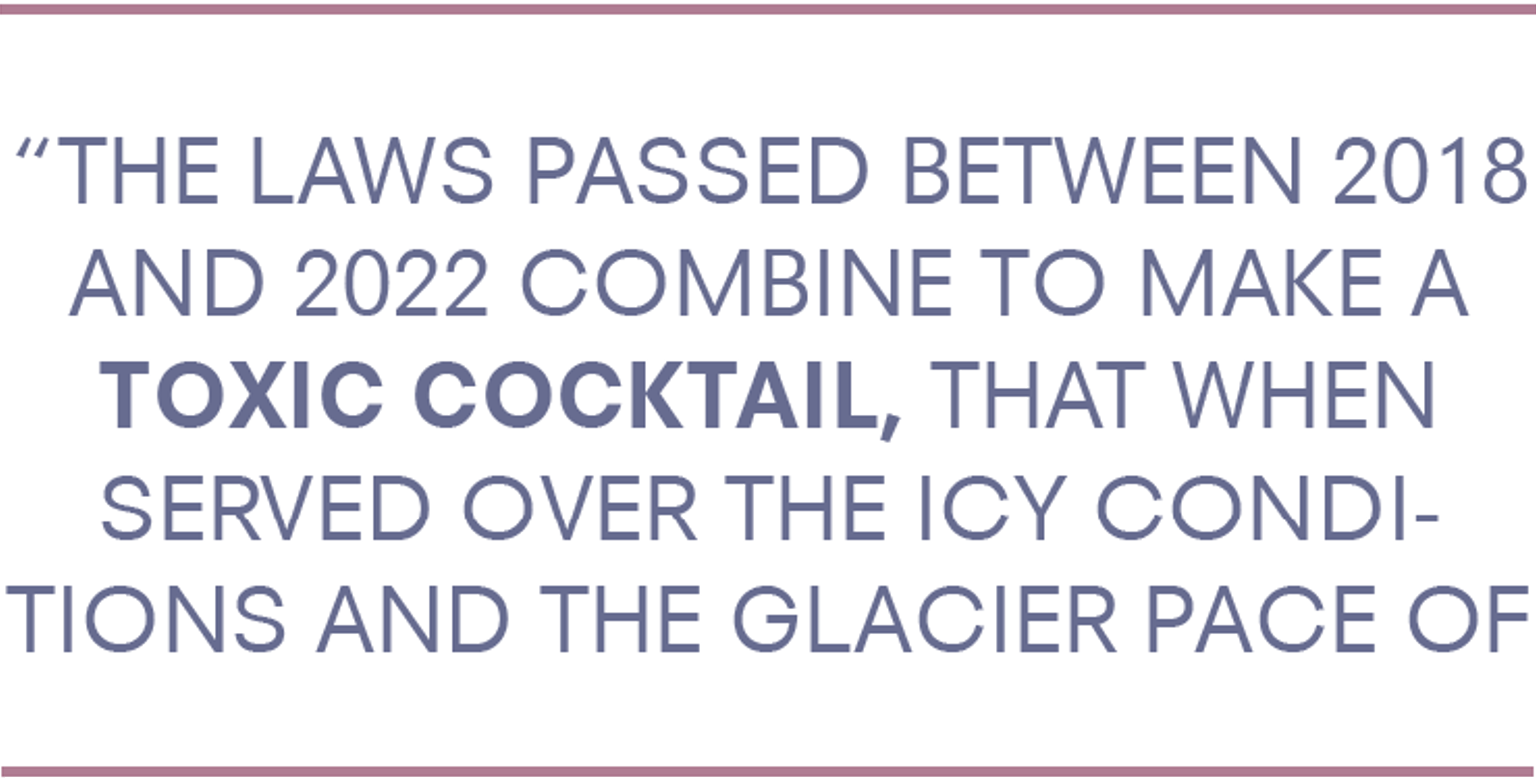Uncertain Future For Affordable Housing In Seattle
On October 22, 2024, a lawsuit was filed by the owners of the Addison on Fourth, a low-income rent-stabilized building in the International District of Seattle. The lawsuit filed against the City of Seattle claims a taking of property due to rental regulations passed by the former city council between 2018 and 2022. A “taking” is a legal term where the basic premise of the argument is that the government has taken your property, whether that be physically or via regulation, without justly compensating you. The taking argument's basis is that rental housing laws touted as “tenant protections” have in fact slowly eroded the ownerships’ ability to ensure stable and safe housing for their residents. Some of the specific laws outlined in the complaint are as follows:
Fair Chance Housing
No criminal background, apart from being a registered sex offender, may be used to disqualify an applicant from becoming a tenant of the building.
Roommate Ordinance
A close friend or family member may move into the unit and claim residency and is afforded the same rights as the actual tenant. They are not required to sign a lease OR go through a background and credit check process.

Winter/School Year Eviction Ban
This policy has destroyed Addison’s ability to reliably collect on-time rent payments from all tenants in their building.
180-Day Notice Period
This is especially problematic for low-income housing because HUD sets rent limits based on the area AMI and changes those numbers yearly. The Addison owners must take into account what HUD’s changes MIGHT be as well as what their operational costs may be, and this must all be decided at least 6 months ahead of time to hand out rent increase notices.
Economic Displacement Relocation Assistance (EDRA)
This policy states that if rent is raised 10% or more in any 12-month period, a housing provider will be required to pay out 3 months’ rent to a tenant to help them relocate should they wish to move.
The complaint filed in King County Superior says, “Starting in 2018, the City began adopting a series of ordinances that, together, made it virtually impossible to operate low-income housing in Seattle.” These policies combined are illustrated in the complaint with pictures showing what the staff and operators of The Addison are now having to deal with. Units that, upon move-out, are completely destroyed, with the average repair costs upwards of $10,000. These are units that tenants are able to live in with no proper background check and are allowed to continue living in during the winter and school year eviction ban period.
Couple this with the backlog of eviction cases in King County and this leaves tenants with ample opportunity to completely destroy a unit before being forced to vacate by the King County Sheriff with a Writ of Restitution after 6 to 12 months.
George Petrie, CEO of GRE, has this to say, “When we began this renovation project in 2013, it was a great public-private partnership providing much-needed low-income housing units. But then the city started to change all the rules, and now the Addison, our residents, and the city are the ones who suffer. It’s heartbreaking and devastating for all stakeholders.”
There was a press conference held the morning of the lawsuit filing which was attended by a number of local news media.
“The laws passed between 2018 and 2022 combine to make a toxic cocktail, that when served over the icy conditions and the glacier pace of the King County courts, makes it incredibly difficult for the Addison to provide stable housing. For residents to feel safe and secure and leaves the Addison unable to meet its financial obligations,” said Sean Flynn, Executive Director of the RHAWA at a press conference in the Addison lobby.
“As the prior city council passed these laws, RHA, GRE, and other industry organizations screamed from the rooftops that these regulations would lead directly to the erosion of affordable housing in Seattle.”
Multiple news outlets reached out to the City of Seattle after the lawsuit was filed, and they predictably answered they could not comment on any pending litigation, but that they do plan on defending the city’s rental housing policies.
Time will tell as this advances through the courts and provide more clarity as to, does GRE Downtowner receive just financial compensation? Does the new Seattle City Council decide to roll back or dismantle any of the above-mentioned policies? What is clear is that low-income housing in Seattle may have an uncertain future for those individuals and families who are most in need.
Formal legal advice and review is recommended prior to selection and use of this information. RHAWA does not represent your selection or execution of this information as appropriate for your specific circumstance. The material contained and represented herein, although obtained from reliable sources, is not considered legal advice or to be used as a substitution for legal counsel.


